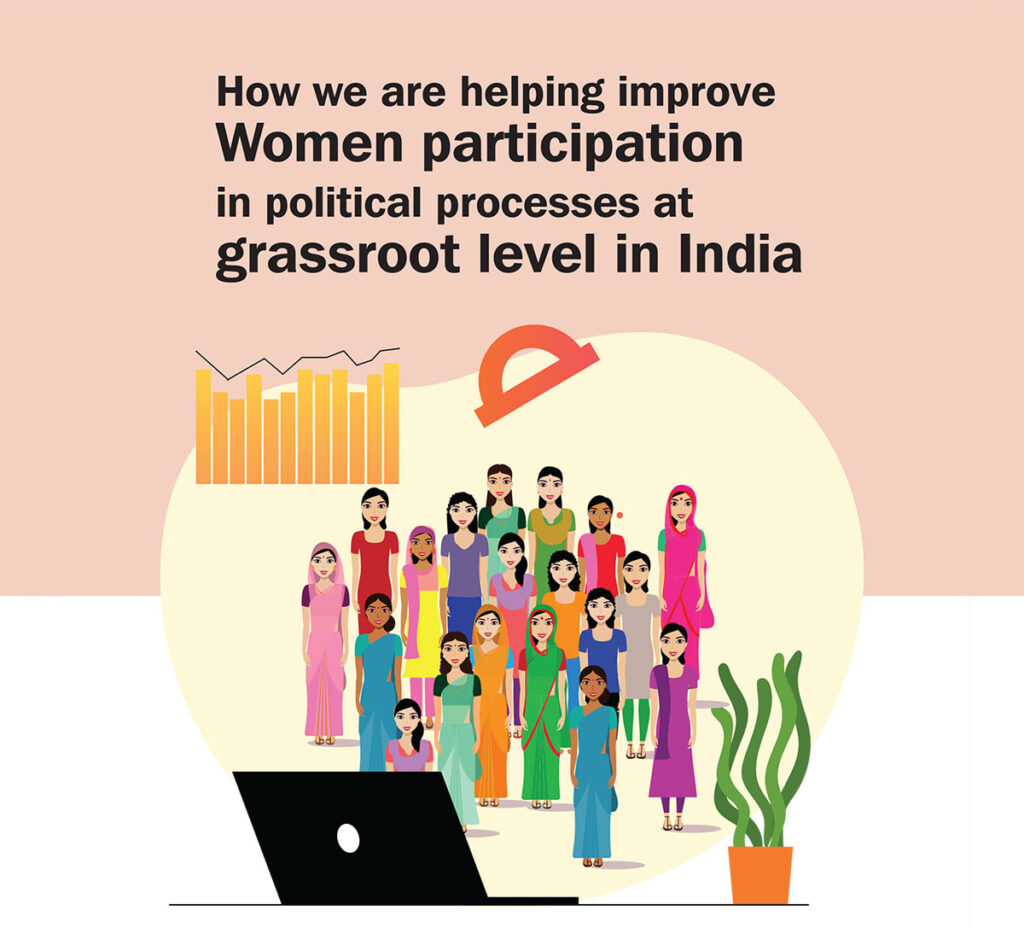
How we are helping improve Women participation in political processes at grassroot level in India
Synopsis:
Remote sensing is a key requirement for any large developing country. It is essential for
planning and monitoring of diverse agenda, including, roadways, waterways, agriculture,
telecom, power, and many more, in an integrated manner. Indian Institute of Remote Sensing
(IIRS), part of ISRO, is the leading institution in India for capacity building in remote sensing.
IIRS wanted to deploy an outreach program in 2012 to certify youth in remote sensing and
build a talent pool for deployment across India.
We built an eLearning platform on Moodle, a popular open-source Learning Management
System Framework. Animations, both 2D and 3D, were created in the 100-hour long course
along with lab work that was deployed on the learner’s machine itself. Importantly, to
increase its reach and acceptance, it was translated and offered also in Hindi. This project
was awarded “National Award for Excellence in Training for the Year 2015” with First
Prize for Innovative Initiatives by the Department of Personnel and Training (DoPT),
Government of India.
The Situation:
IIRS wanted to develop large-scale and widespread talent across India in the area of Remote
Sensing, to help the country manage its growth systematically. For easy off-take of the
course, it was designed as an outreach program for youth to acquire a relevant certification.
Open-source Learning Management Systems (LMS) were in the nascent stage and quality
internet penetration was still poor in 2012. Hence, the solution had to be light and at the
same time impactful enough for remote students to engage with and learn. Additionally, the
content had to be structured in a way that it would be easy for future translation to Indian
languages.
The Solution:
We were chosen to develop a web-based learning management system and e-learning for its
outreach certificate programs. We developed a Web-Based Learning Management System
using Open Source (Moodle) platform and e-learning content. This had to be translated into
Hindi.
We also developed over 100 hours of e-learning content at level II interactivity in English &
Hindi. 2D animations (Level-3), and 3D animations (Level-1, 2, 3) were used extensively to
ensure that learning happened. Video demonstrations, practical sessions, and assessments
were deployed to deliver actionable knowledge. Besides hosting the LMS, we also provided
assistance in implementation and maintenance.
The Impact:
e-learning courses of over 100 hours were developed and deployed. The Hindi version
is reaching out to more people, who are comfortable learning in their native language.
The courses are running successfully and IIRS has also bagged the “National Award for
Excellence in Training for the Year 2015” with First Prize for Innovative Initiatives by the
Department of Personnel and Training (DoPT), Government of India.



